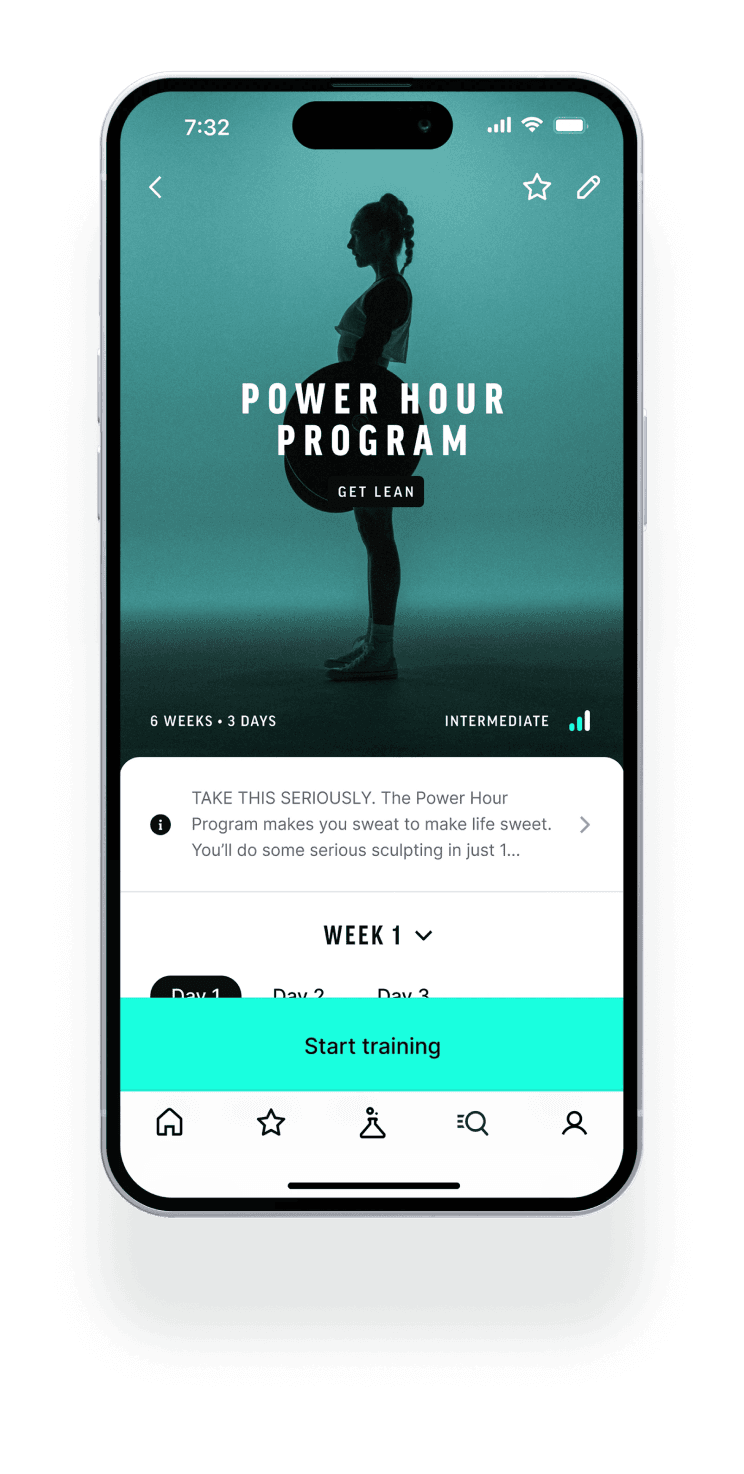Losing 5 Kilos – An Honest Tale for Lasting Weight Loss
Welcome to Losing 5 Kilos – An Honest Tale for Lasting Weight Loss. In this article, you'll learn about the fundamentals of weight loss and get practical tips to lose 5 kilos. Or more, if you wish, although the battle against the kilos gets harder.
Shedding weight can feel like an impossible challenge. The internet and social media flood you with quick fixes and diet plans promising unrealistic results. I'm sorry in advance, but I'm here to paint you the real picture and tell you how to lose weight structurally and healthily.
Losing 5 Kilos – Understand How Weight Loss Works
Despite what many influencers claim, a calorie deficit is indeed the foundation. Without a deficit in calories, your body will never burn energy from its current fat reserves. You can't lose weight in a calorie surplus. No timing or supplement makes that possible.
In short, you need to aim for a calorie deficit without your body drastically slowing down its metabolism. Metabolism is a fancy word for energy burning. The more energy your body burns in a day, the higher its metabolism. The next paragraph will discuss the most important variables of this.
How many calories is 1 kilo of fat?
If you search the internet for how many calories 1 kilo of fat is, you'll find numbers between 7,000 and 9,000. 1 gram of fat is 9 kcal, but 1 kilo of fat in the body is not 100% fat. For the sake of simplicity in this article, and because it's nicer when the execution in practice is easier than expected, I choose to calculate with 9,000 calories per kilo of fat.
So, if you want to lose 5 kilos, you need to get rid of 45,000 calories from your fat reserves. That means a net calorie deficit of 45,000 kcal. The calculation can easily be extended. If you want to lose 10 kilos, you need to burn 90,000 calories from your current fat reserves.
Also read: losing belly fat if you're over 50.
What Variables Increase Your Metabolism?
Which requires more energy: sitting or standing? And what costs more energy: moving or standing? The more you stand and the more you move, the more energy you spend in a day. Physical activity determines the largest part of your metabolism. Additionally, your energy expenditure is determined by resting consumption (the amount of energy you need to get through the day sitting and lying down) and, to a lesser extent, by digesting food.
The energy used for digesting food can be disregarded. Also, there are no food sources that make you burn more calories digesting than what they contain. Unless, of course, you spend minutes chewing on your water.
What you can most influence is the energy expenditure by moving more. Walk more. Cycle more often and exercise. Preferably strength training, because strength training is by far the best activity to maintain your resting metabolism.
In short, here's what you can do to increase your metabolism and lose those 5 kilos or more faster:
Try to sit less and stand more.
Park your car further away so you have to walk more.
Cycle and walk more often.
The most important: engage in regular strength training.
Extra gain: add cardio training (running, cycling, stair climbing, rowing) to your training week.

How Does Your Metabolism Decrease?
If you've previously lost 5 or 10 kilos, you'll likely recognize the following: the first kilos, provided you make a solid effort, come off relatively quickly. After that, it takes more work to shave off ounce by ounce. Why it often goes quickly at the beginning, you'll read in the next paragraph; now, we'll focus on the decrease in metabolism.
Increased Hunger
When you're in a negative energy balance – burning more energy than you're taking in – your body starts to fight you. Your body doesn't want to lose weight and quickly adapts to the 'heaviest' weight, adjusting its hormones accordingly. These hormones affect your hunger and satiety feelings but also your metabolism. You won't notice this after losing the first few kilos, but you will as you go further in the weight loss journey. Your feeling of hunger increases and, worse, your feelings of satiety decrease. This is because your brain is accustomed to a certain amount of satiety hormones from your fat mass (leptin). As your fat mass decreases, it secretes less leptin, and your brain registers all day that you're not fully satisfied. On one hand, this makes you hungry; on the other hand, your body tries to use less energy.
Less Movement
Unconsciously, you'll tend to sit or lie down more and exert less effort, which is what your brain tries to make you do. After losing 5 or 10 kilos, the renewal rate of some tissues also decreases (for example, your nails grow less quickly) to save a bit of energy everywhere.
Lighter Weight and Less Muscle Mass
Try walking around the gym with two 10-kilo weights in your hands. This is a lot harder than just walking. Every extra kilo on your body makes every step you take more energy-intensive. As you get lighter, every form of exertion (sitting, standing, walking) becomes easier. In short, you burn less and less energy as you lose weight. Moreover, if the body has to choose, it would rather burn muscle mass than fat, since maintaining 1 kilo of muscle mass costs 2 to 3 times more energy. This is one of the reasons to engage in strength training: the more muscle mass you maintain, the higher your resting energy expenditure to maintain that muscle mass.
Also read: why losing weight is harder when you're overweight.
Losing 5 Kilos in 2 Weeks…
If you've been paying attention, you know that to lose 1 kilo of fat, you need to burn about 9,000 calories. So, losing 5 kilos means 45,000 calories. To do this in two weeks, you'd need to create a daily deficit of just over 3,200 calories. That means not eating for 2 weeks and exercising for at least 2 hours a day. In short, this is impossible. But... you might still see 3 to 5 kilos less on the scale after 2 weeks. This is possible because if you stop eating carbohydrates, you can easily lose 2 liters of fluid in a few days. If you then lose 1 to 2 kilos of fat and muscle mass, which can happen with a strict diet, then you almost reach that 5 kilos. However, at most, it will be 1 kilo of fat... So, you still have 4 kilos to go.
Also read: you don't lose weight faster by adding lemon to water.

Why Strength Training is Essential for Weight Loss
Your muscles are the most important variable for metabolism for two reasons. Maintaining your muscles requires a lot more energy than fat, and muscles enable you to perform more physical exertion.
As we get older, you often hear that you gain more fat mass and find it harder to lose than when you're young. The reason you often hear is: hormones. "Yeah, what about hormones, I always think", it's such an easy sentence. However, it's not the hormones. As age increases, people move less. And if you move less, your muscle mass decreases. With less muscle mass, moving becomes more challenging, leading to even less movement. This is a very unpleasant vicious cycle.
Fortunately, you can largely reverse this by maintaining your muscle mass or, in many cases, building it up. Strength training is the most effective sport for achieving this, provided you have a good fitness plan. Up to the age of 65, by seriously engaging in strength training combined with a slight calorie deficit, you can keep many fat kilos at bay.
Fitness Plan for Weight Loss
If you want to lose 5 kilos, or 10, or 15, the smartest way to do it is with a fitness plan for weight loss. The focus here is on maintaining or building muscle mass and adding cardio training or circuit training to burn extra calories. Where do you find such a plan? Here are 100 ready for you, all based on science. You can't train more effectively for weight loss than this.
7 Tips to Lose Fat Faster
Losing weight is a battle against your hormones. You stand the best chance of winning if you have a clear battle plan. Here are, in my opinion, 7 super easy-to-implement tips to give you a big head start:
Sleep at least 7 hours per night. Lack of sleep is associated with lower levels of leptin and higher levels of ghrelin. That means hunger from the start. By getting enough sleep, these hormones balance out, keeping leptin levels high and ghrelin low. The battle for that day becomes much easier.
Opt for high-volume, low-calorie foods. When your stomach expands, the release of ghrelin (hunger) decreases. Water and products with soluble fiber (think vegetables, fruits, and legumes) are a smart solution to quiet the hunger hormone.
Add proteins and fats to each meal, in moderation. These sources of nutrition increase the release of satiety hormones in your intestines.
Eat slowly, as the satiety hormones only really take effect after about 20 minutes.
Eat from a smaller plate and with smaller utensils. The illusion that you're still eating a lot has a seriously strong effect on the feeling of satiety.
Serve food in the kitchen and not at the table. The delicious smell from a pan on the table invites you to serve yourself again.
Increase your metabolism by moving more. When you're moving, your body isn't focused on eating, as the blood needs to go to your muscles. A very significant win-win situation. It's no coincidence that it has been shown that lasting weight loss is much simpler when you add sports to your lifestyle. Choose a tailored plan here and make it even easier for yourself.
Also read: lowering cholesterol through exercise and nutrition

Nutrition for Weight Loss – What Should You Do?
More diet books have been sold than any other type of book. I think more diet books have been written than any other genre as well. So, I understand if you can't see the forest for the trees. Ultimately, an effective nutrition program for weight loss boils down to the following:
Eat fewer calories than you expend.
Ensure a diet plan that suits you.
No matter how beautifully written a book on the subject is, every successful diet boils down to this. Based on science, the most effective method for structural weight loss is to lose weight gradually and in small steps. Aim for a maximum of 0.5% weight loss per week. If you weigh 80 kilos, that's a maximum of 400 grams lost per week. So, if you want to lose 5 kilos, you're looking at at least 12 weeks. If you ask me, that's already quite ambitious. Whether you eat a little less every day, or eat stricter for 5 days to allow for more caloric leeway over the weekend, doesn't matter. And if you find it hard to eat less? Compensate by exercising more. Just keep in mind that losing a kilo requires about 12-15 hours of exercise. So don't think you can eat a bag of chips after an hour of exercise. You'll just end up gaining fat.
Also read: You Are What You Eat – The Review
Losing 5 Kilos, You Can Do It Too!
Although you might have hoped for a miracle cure or quick fix instead of an honest story, I hope this article still provides you with a lot of motivation and a solid foundation. Anyone can lose weight, including you. But let's be honest: structural weight loss is not easy and requires a lot of discipline. Also acknowledge that you can't lose weight every week and that life should be enjoyable. Take the time to win the weight loss battle and start with a serious fitness plan.
Frequently Asked Questions About Losing 5 Kilos
How long does it take to lose 5 kilos?
It varies from person to person, but safe weight loss is defined as 0.5 to 1 kilo per week. So, losing 5 kilos can take about 5 to 10 weeks. It's smarter to take even longer. This increases your chances of achieving lasting results.
What should I eat to lose 5 kilos?
Focus on a balanced diet rich in vegetables, fruits, whole grains, proteins, and healthy fats. Reduce the intake of sugary and highly processed foods. Ultimately, you need to create a negative energy balance to lose weight.
Can you lose 5 kg in 1 month?
Yes, but it's on the high end of what's considered safe weight loss. As mentioned above, most of those 5 kilos won't be fat, but total weight consisting of water, muscle, and fat. Take your time if you're serious about losing weight and caring for your health.
What happens when you lose 5 kilos?
Overweight is one of the main variables in many (chronic) diseases and conditions. Especially fat around the organs poses health risks. If you manage to keep or get your weight to a healthy BMI, the list of health benefits is very long.
Is losing 5 kilos noticeable?
Yes, a loss of 5 kilos can be noticeable, especially if it involves fat loss. It can lead to a slimmer appearance and clothes fitting better.
Where do you lose weight first?
This varies from person to person. Your body decides where it takes the fat from first. From my experience, I think the body balances out where it removes the fat rather than 'emptying one place first'.
START TRAINING SERIOUSLY
Discover new training methods based on scientific knowledge, improve your form and technique and seriously track your fitness goals.






